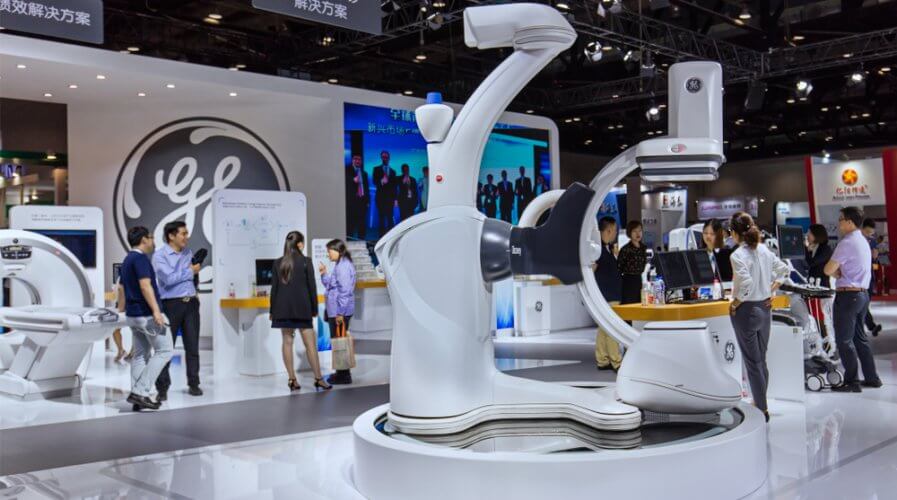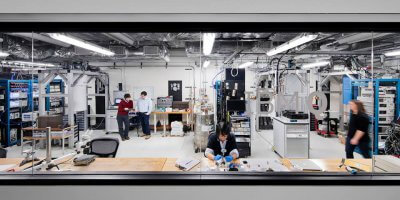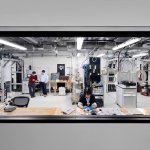
Technology is making headway in healthcare. Source: Shutterstock
Is the future of the healthcare industry DARQ?
DIGITAL transformation and disruption in industries such as manufacturing and logistics have shown us that individual technologies are powerful but a combination of one or more technologies can bring about a paradigm shift to not just operations but also business models.
According to a new report, a combination of emerging technologies known as “DARQ”—distributed ledger, artificial intelligence (AI), extended reality (XR) and quantum computing—will spark a step change in becoming healthcare’s future digital foundation.
However, 94 percent of professionals surveyed in the healthcare industry said they believe emerging technologies have accelerated the pace of change over the past three years — but believe there more needs to be done before there can be a real transformation.
In fact, 77 percent of healthcare executives believe their employees are currently more digitally mature than their organization, resulting in a workforce “waiting” for the organization to catch up.
In terms of technologies that are expected to make an impact in the industry, 68 percent of executives believe DARQ will have a transformational or extensive impact on their organizations over the next three years, and 89 percent of respondents claimed they are currently experimenting with at least one DARQ technology.
What’s exciting about using DARQ as a combination is that it opens up new possibilities as a function of the capabilities that each technology brings to the table — such as transparency and immutability, computer-aided decision making, visualization & virtualization, and probability assessment.
Of the four DARQ technologies, however, AI is expected to have the greatest impact on their organization over the short-term — as 41 percent of respondents confirmed.
AI is already making headway in healthcare
“AI is empowering healthcare applications such as telemedicine and mobile health (mHealth) solutions, aiding doctors and patients by making medical services more accessible and efficient,” Roland Berger Indonesia Partner (Head of Life Sciences Southeast Asia) Yoshihiro Suwa told Tech Wire Asia.
Suwa pointed out that at the conference of the American Association for the Advancement of AI (AAAI) last year, research was presented in which patients with a history of diabetes were detected with an accuracy of 85 percent using the heart rate monitor of an Apple Watch.
The team announced that Cardiogram has so far been able to detect arrhythmia with 97 percent accuracy, sleep apnea with 90 percent accuracy, and hypertension with 82 percent accuracy by combining of the heart rate monitor of the Apple Watch with the team’s machine learning algorithm.
Cardiogram is not alone in this space, it is one of many such apps that provide such tools to everyday citizens looking to stay on top of their health.
“While these tools, by themselves, are insufficient to make a decisive diagnosis, they could lead to early detection and prevention if they can encourage high-risk patients to have exams performed by physicians,” said Suwa.
The important thing to note is that healthcare companies, insurance providers, and startups are coming together to work on various AI-powered solutions to disrupt the industry (and benefit patients).
In China, for example, we recently saw Ping An launch an “Instant Clinic”, a combination of online inquiry, intelligent diagnosis, and smart pharma-retail, capable of providing users with a complete range of medical services — all using AI.
Ping An’s solution is a boon for China where there are less than 0.2 doctors per 1,000 patients, compared to Australia where there are more than 1.5 doctors per 1,000 people and the UK which has about one doctor per 1,000 people.
In the coming months, experts believe that more interesting innovations will make headlines — and those that leverage a combination of the DARQ technologies might just bring about that much-needed step-change the healthcare industry needs.
READ MORE
- Strategies for Democratizing GenAI
- The criticality of endpoint management in cybersecurity and operations
- Ethical AI: The renewed importance of safeguarding data and customer privacy in Generative AI applications
- How Japan balances AI-driven opportunities with cybersecurity needs
- Deploying SASE: Benchmarking your approach






